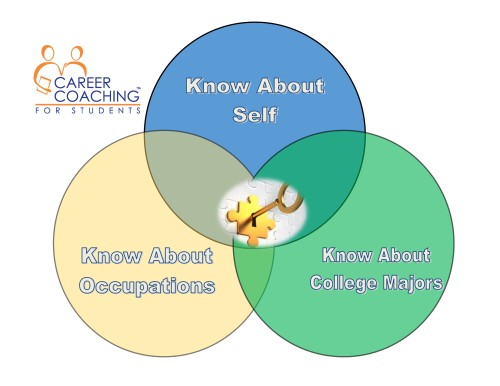 Seth Godin published a book in 2010 called Linchpin which quickly became popular. This article is dedicated to his teachings from the book – mostly quotes from the book. I encourage any high school student to buy the book and read it. If you are a parent of a student, read it. If you work in the home or outside the home, read it.
Seth Godin published a book in 2010 called Linchpin which quickly became popular. This article is dedicated to his teachings from the book – mostly quotes from the book. I encourage any high school student to buy the book and read it. If you are a parent of a student, read it. If you work in the home or outside the home, read it.
In the book, Godin positions work by first stating “The job is what you do when you are told what to do. The job is showing up at the factory, following instructions, meeting spec, and being managed. Someone can always do your job a little better or faster or cheaper than you can. The job might be difficult, it might require skill, but it’s a job.
On the other hand, your art is what you do when no one can tell you exactly how to do it. Your art is the act of taking personal responsibility, challenging the status quo of your own work, and influencing change in people and processes to achieve goals.
Godin shifts our perspective. He calls the process of doing your art ‘the work.’ It’s possible to have a job and do the work, too. In fact, that’s how you become a linchpin. The job is not the work.”
Art isn’t only a painting. Art is anything that’s creative, passionate, and personal. And great art resonates with the viewer, not only with the creator.
What makes someone an artist? Godin states that he doesn’t think it has anything to do with a paintbrush. There are painters who follow the numbers, or paint billboards, or work in a small village in China, painting reproductions. These folks, while swell people, aren’t artists. On the other hand, Charlie Chaplin was an artist, beyond a doubt. So is Jonathan Ive, who designed the iPod. You can be an artist who works with oil paints or marble, sure. But there are artists who work with numbers, business models, and customer conversations. Art is about intent and communication, not substances.
An artist is someone who uses bravery, insight, creativity, and boldness to challenge the status quo of their work. And an artist takes personal responsibility.
That’s why Bob Dylan is an artist, but an anonymous corporate hack who dreams up Pop 40 hits on the other side of the glass is merely a marketer. That’s why Tony Hsieh, founder of Zappos, is an artist, while a boiler room of telemarketers is simply a scam.
Tom Peters, corporate gadfly and writer, is an artist, even though his readers are businesspeople. He’s an artist because he takes a stand, he takes the work personally, and he doesn’t care if someone disagrees. His art is part of him, and he feels compelled to share it with you because it’s important, not because he expects you to pay him for it.
Art is a personal gift that changes the recipient. The medium doesn’t matter. The intent does.
Art is a personal act of courage, something one human does that creates change in another.
The secret to being wrong isn’t to avoid being wrong! The secret is being willing to be wrong. The secret is realizing that wrong isn’t fatal.
Here’s the truth you have to wrestle with: the reason that art (writing, engaging, leading, all of it) is valuable is precisely why I can’t tell you how to do it. If there were a map, there would be no art, because art is the act of navigating without a map.
The dimension of work that has a map isn’t where your art is applied. Your art is applied where the map stops.
Perhaps your challenge isn’t finding a better project or a better boss. Perhaps you need to get in touch with what it means to feel passionate. People with passion look for ways to make things happen.
If you are deliberately trying to create a future that feels safe, you will willfully ignore the future that is likely.
At the age of four, you were an artist. And at seven, you were a poet.
The lizard brain is hungry, scared, angry, and horny. The lizard brain only wants to eat and be safe. The lizard brain will fight (to the death) if it has to, but would rather run away. It likes a vendetta and has no trouble getting angry. The lizard brain cares what everyone else thinks, because status in the tribe is essential to its survival.
A squirrel runs around looking for nuts, hiding from foxes, listening for predators, and watching for other squirrels. The squirrel does this because that’s all it can do. All the squirrel has is a lizard brain.
The only correct answer to ‘Why did the chicken cross the road?’ is ‘Because it’s lizard brain told it to.’ Wild animals are wild because the only brain they posses is a lizard brain.
The lizard brain is not merely a concept. It’s real, and it’s living on the top of your spine, fighting for your survival. But, of course, survival and success are not the same thing.
The lizard brain is the reason you’re afraid, the reason you don’t do all the art you can, the reason you don’t ship when you can. The lizard brain is the source of the resistance.
Discomfort brings engagement and change. Discomfort means you’re doing something that others were unlikely to do, because they’re hiding out in the comfortable zone. When your uncomfortable actions lead to success, the organization rewards you and brings you back for more.
If you need to conceal your true nature to get in the door, understand that you’ll probably have to conceal your true nature to keep that job.
Transferring your passion to your job is far easier than finding a job that happens to match your passion.
…Treasure what it means to do a day’s work. It’s our one and only chance to do something productive today, and it’s certainly not available to someone merely because he is the high bidder.
A day’s work is your chance to do art, to create a gift, to do something that matters. As your work gets better and your art becomes more important, competition for your gifts will increase and you’ll discover that you can be choosier about whom you give them to.
The competitive advantages the marketplace demands is someone more human, connected, and mature. Someone with passion and energy, capable of seeing things as they are and negotiating multiple priorities as she makes useful decisions without angst. Flexible in the face of change, resilient in the face of confusion. All of these attributes are choices, not talents, and all of them are available to you.
The tragedy is that society (your school, your boss, your government, your family) keeps drumming the genius part out. The problem is that our culture has engaged in a Faustian bargain, in which we trade our genius and artistry for apparent stability.
The problem with competition is that it takes away the requirement to set your own path, to invent your own method, to find a new way.
As our society gets more complex and our people get more complacent, the role of the jester is more vital than ever before. Please stop sitting around. We need you to make a ruckus.
You cannot create a piece of art merely for money. Doing it as part of commerce so denudes art of wonder that it ceases to be art.
…the greatest shortage in our society is an instinct to produce. To create solutions and hustle them out the door. To touch the humanity inside and connect to the humans in the marketplace.
Not only must you be an artist, must you be generous, and must you be able to see where you can help but you must also be aware. Aware of where your skills are welcomed.
When you set down the path to create art, whatever sort of art it is, understand that the path is neither short nor easy. That means you must determine if the route is worth the effort. If it’s not, dream bigger.
I think art is the ability to change people with your work, to see things as they are and then create stories, images, and interactions that change the marketplace.
The combination of passion and art is what makes someone a linchpin.
A brilliant author or businesswoman or senator or software engineer is brilliant only in tiny bursts. The rest of the time, they’re doing work that most any trained person could do.
If you can’t be remarkable, perhaps you should consider doing nothing until you can.
The reason you might choose to embrace the artist within you now is that this is the path to (cue the ironic music) security.
Carl Nielson is Chief Discovery Officer of Success Discoveries and Managing Principal of The Nielson Group, an organizational development consulting firm serving businesses ranging from Fortune 100 multi-national corporations to small family-owned businesses. As creator and master trainer of the Career Coaching for Students program for high school students and Career and Success Skills Mastery for College Students and Recent Grads, Carl and his team of licensed facilitators across North America have helped thousands of students find a better way through a career exploration process that really works. Professional-grade assessments and co-directed career exploration coaching packages start at $399. Local public workshops, distance-coaching and in-school programs available. Call for more information at 972.346.2892 or submit an inquiry here:



 by
by 
 Most high-achieving students are not provided much attention unless they specifically request assistance. Most students believe they are suppose to somehow magically know what they want to be or have the confidence and ability to figure it out – yet over 90% of students do not have clarity nor the confidence to adequately make decisions effectively.
Most high-achieving students are not provided much attention unless they specifically request assistance. Most students believe they are suppose to somehow magically know what they want to be or have the confidence and ability to figure it out – yet over 90% of students do not have clarity nor the confidence to adequately make decisions effectively.








